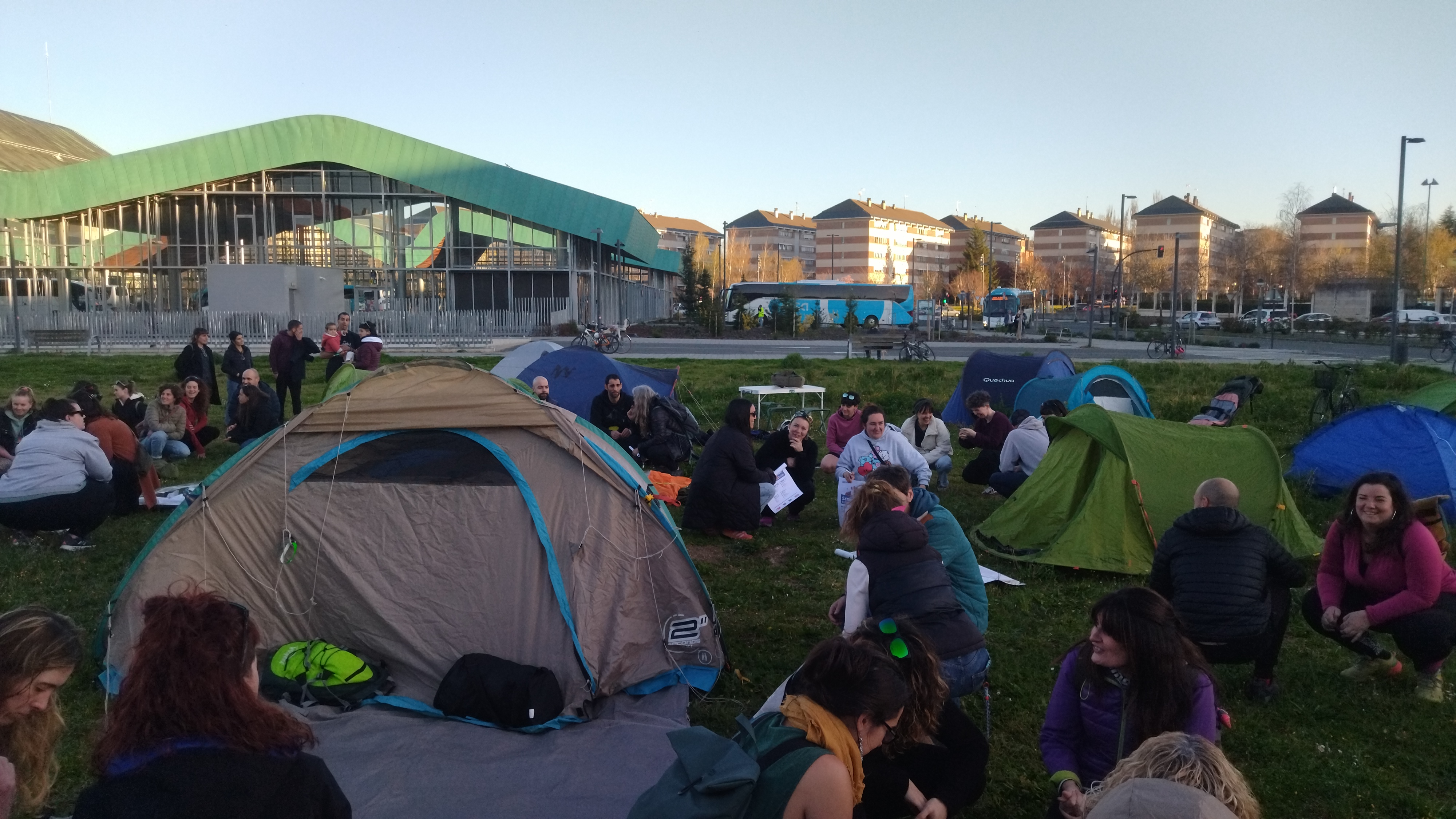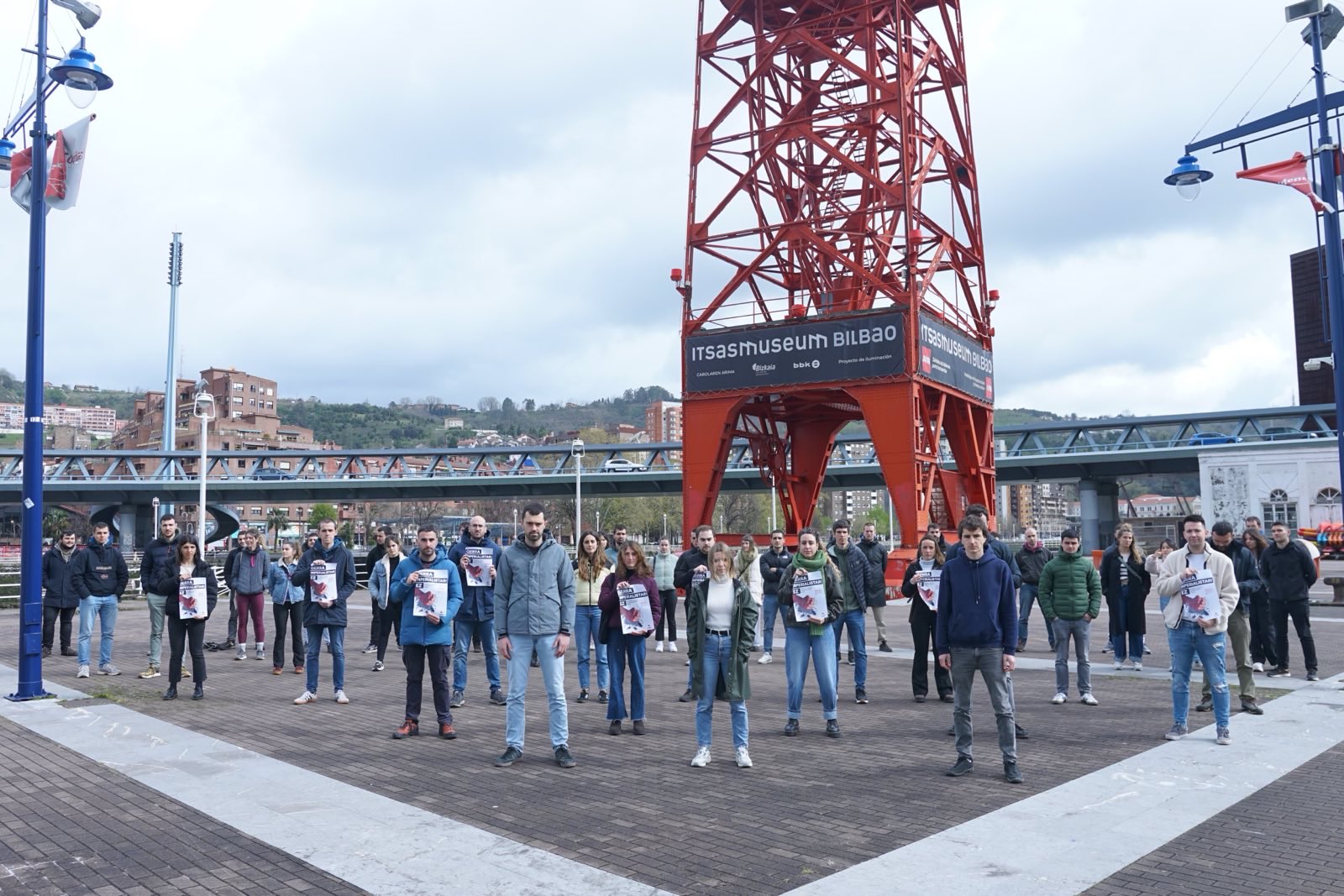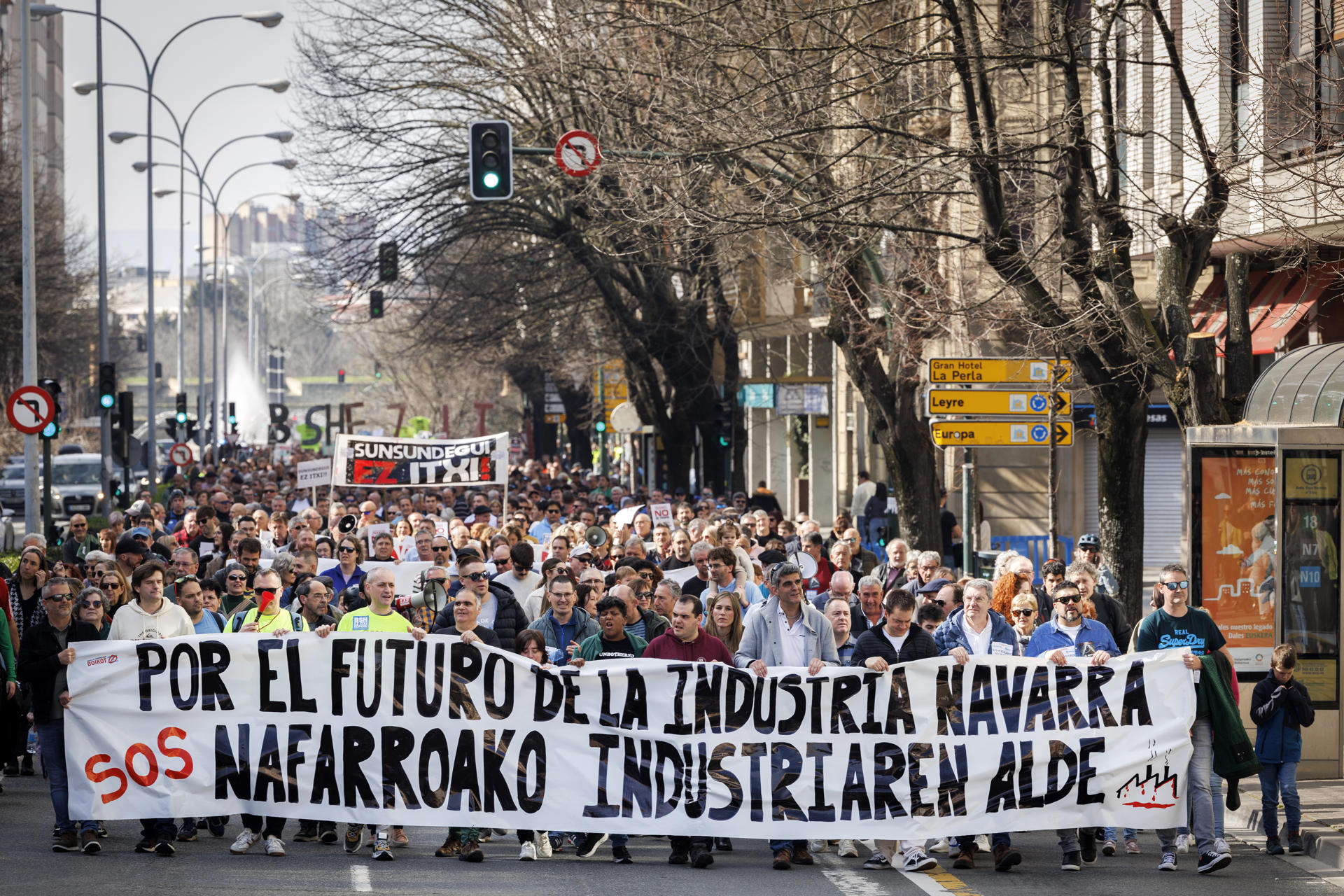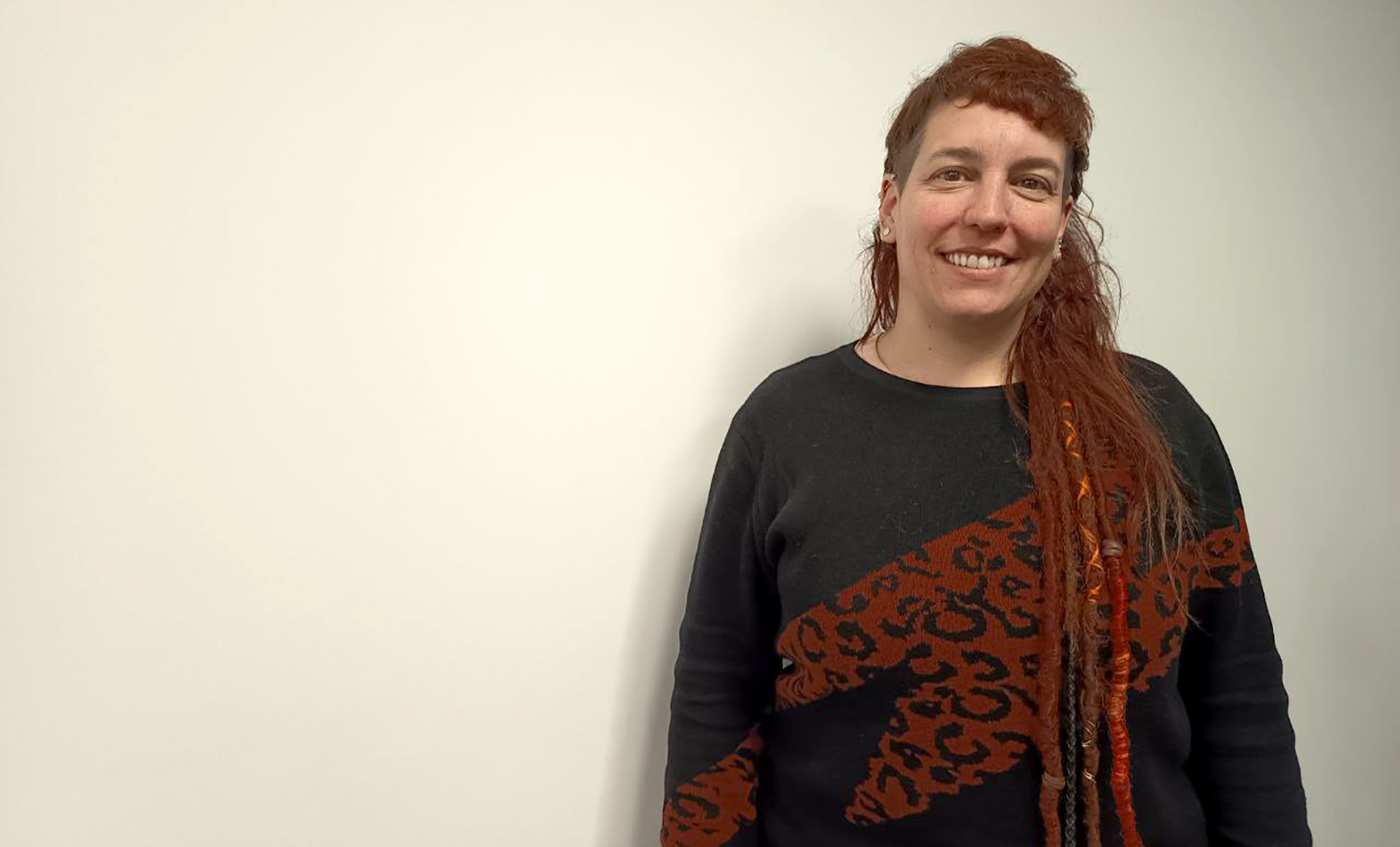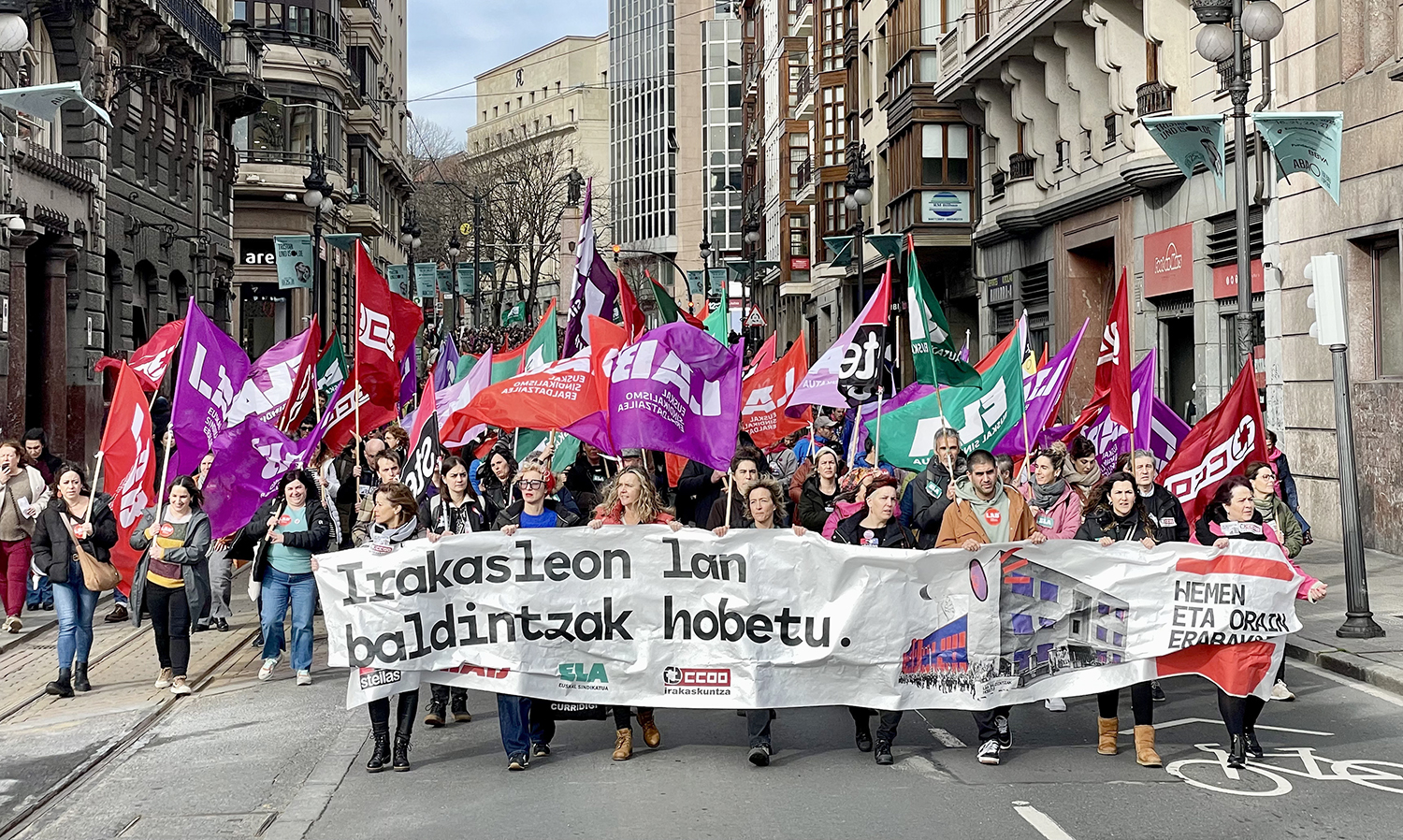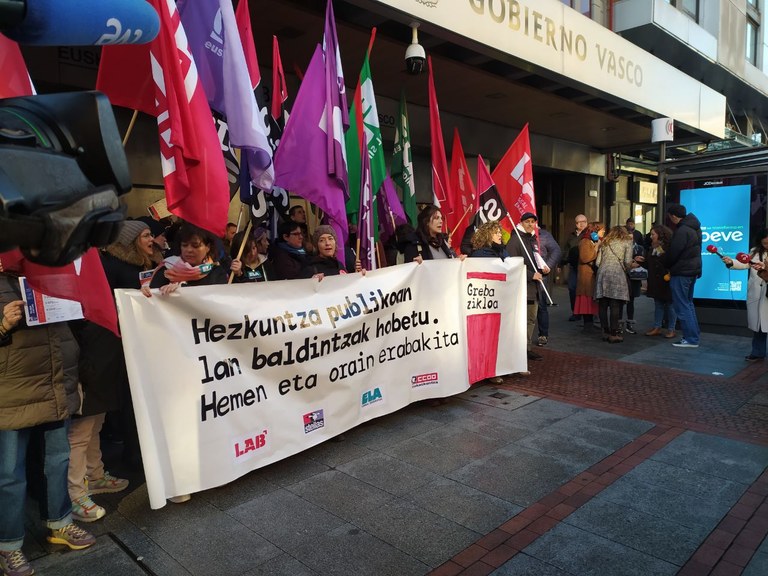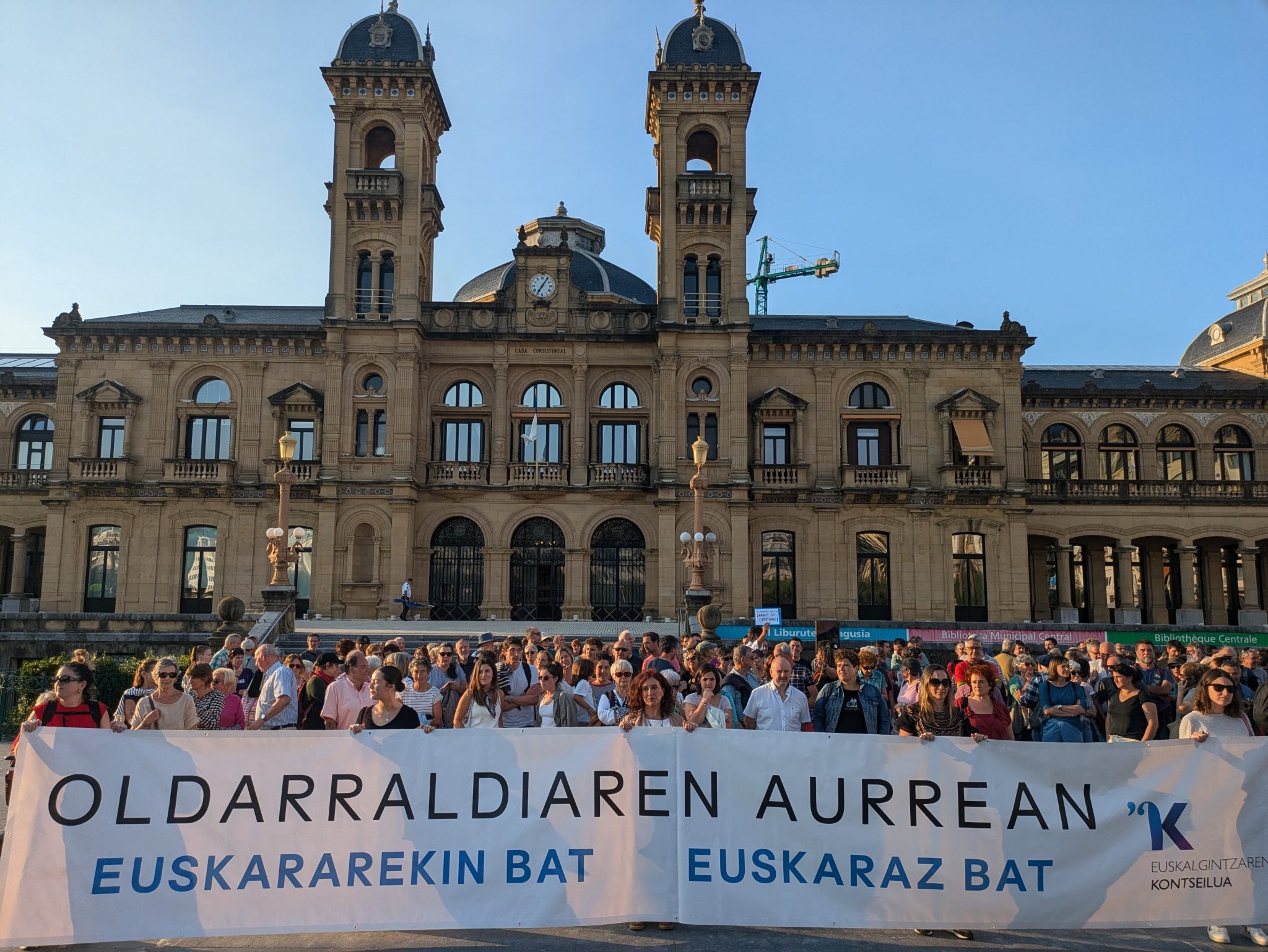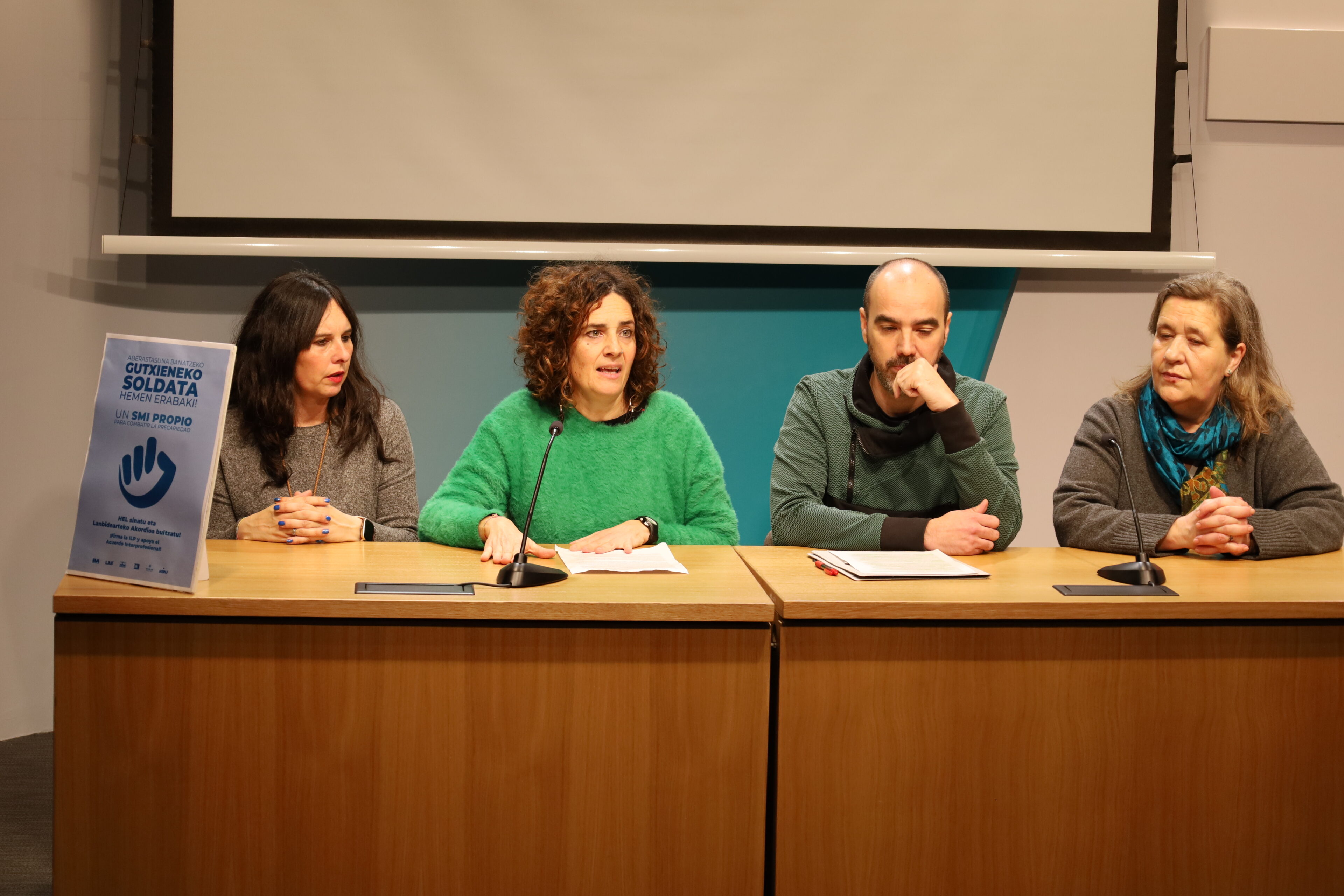Special offer to textile workers in January: part-time work and wage freeze
- Workers in the textile sector in Gipuzkoa will continue to strike at least until Saturday because of the bad attitude shown by the employers in negotiating the sectoral agreement. In Navarre, H&M staff at the La Morea Mall have also been on indefinite strike since 9 December to denounce the wage freeze since 2009.

January is often a time of sale and special offers in many shops, but textile workers have not been changed working conditions and continue to make part-time work and receive low wages. Since last December, workers in this feminized sector have been struggling to assert their rights.
In Gipuzkoa, the strike began on 28 December by textile workers and will last until Saturday at least. ELA criticizes the employers in the sector, the Association of Traders of Gipuzkoa and Adegi, because they have not renewed the employment agreement affecting 2,700 workers, so that workers work in precarious conditions, with an "imbalance of temporality". Textile workers are calling for a wage increase in line with the CPI and an end to bias.
The textile representative of ELA, Amaia Graffiti, explained to the Berria newspaper that since 15 December the unions and the two employers have not met to discuss the agreement and the latter are "blocking" the negotiation.
ELA has assured that despite the fact that no follow-up data has been provided on the strike, a significant impact is occurring, with a majority of the representation in Gipuzkoa, and that there are completely closed shops.

Not only in Gipuzkoa, but also in Navarra, the 18 H&M workers at the La Morea shopping centre have been fighting since 9 December. They indicate that workers only charge EUR 1,000 for the 8-hour and EUR 500 work part-time. The workers want to force the management of the company to negotiate an undertaking agreement in the area of Navarra, but they have not yet met with strikers
Wages in the textile sector have been frozen since 2009 and ELA estimates that since then they have lost 17% of their purchasing power.
Londres, 1944. Dorothy izeneko emakume bati argazkiak atera zizkioten Waterloo zubian soldatze lanak egiten ari zela. Dorothyri buruz izena beste daturik ez daukagu, baina duela hamar urte arte hori ere ez genekien. Argazki sorta 2015ean topatu zuen Christine Wall... [+]
%90eko jarraipen "ia erabatekoa" izan du grebak, sindikatuen arabera. Gasteizko parkeak, lorategiak eta eraztun berdea mantentzen dituzte Enviser azpikontratako 90 langileek.
Inbertitzailerik agertu ezean, Iruñeko Merkataritza arloko lehen epaitegiari egin dio proposamena Molins eta Andres abokatu bulegoak, Altsasuko enpresaren hartzekodunen konkurtsoko administratzaileak. Dumarey Belgikako taldeak fabrika erosteko saiakerak egin... [+]
Non daude talka handienak eta zenbateraino dago gertu akordioa, EAEko hezkuntza publikoko irakasleentzat? Greba ziklo luzeari amaiera emateko sukalde lanaren eta gakoen inguruan mintzatu gara, STEILASeko bozeramaile Haizea Arbiderekin. “Grebak bertan behera utziko... [+]
Astelehen arratsalde-gaueko negoziaketa bilera luzearen ostean aurreakordiorik lortu gabe, EAEko hezkuntza publikoko irakasleak grebara deituak izan dira berriz ere; urtea hasi denetik bosgarren greba eguna izan da asteartekoa. Lanuzteek %75eko jarraipena izan dutela adierazi... [+]
Hezkuntza Sailarekin hainbat aldiz bildu dira hezkuntzako sindikatuak irakasleen lan baldintzak negoziatzeko. Hitzarmena berritzea, baina, ez dute lortu, eta martxoko eta apirileko bost greba egunetarako deialdia egin diete irakasleei. Lehenengoa astearte honetan izango da.
ELA sindikatuak azaldu duenez, azken Lan Eskaintza Publikoaren oinarrien arabera, Ertzaintzarako eskainitako lanpostuen %20ak eta Udaltzaingoaren %30ak ez daukate euskara-eskakizunik. Gasteizen, adibidez, udaltzain-lanpostuen erdietan, 24tan, ez dago euskara-eskakizunik.
Kamioiak ez sartu ez atera. Horrela eman dute goiza BSHko Eskirozko lantokian. Parez-pare langileak aurkitu dituzte protestan. Hilkutxa batekin, elkarretaratze formatuan lehenbizi eta Foruzaingoak esku hartu behar zuela jakin dutenean eserialdia egin dute erresistentzia pasiboa... [+]
Mahai Orokorreko sindikatuek salatu dute Gobernuak utzikeriaz jokatu duela ordezkaritza sindikalarekin negoziatzerakoan, horren adibidea da Estatutu berriaren negoziazioan ezarri duen blokeoa. Gobernua Mahai Orokorrean gai horiek guztiak negoziatzera esertzeko ahalegin ugari eta... [+]
“Beste alde batera begiratzea” leporatu diete erakunde publikoei, eta baita eskualdeko borroka defendatzea ere.
Tamara Yague Confebaskeko presidenteak iragarri du gehiengo sindikalak deitutako martxoaren 20ko bilerara ez dela joango, eta gehitu du gutxieneko soldataz eztabaidatzeko markoa Espainiako Mahaia dela. ELA, LAB, ESK, Steilas, Etxalde eta Hiru sindikatuek EAErako gutxieneko... [+]
“Posta publikoa eta kalitatezkoa. Eskubideen aldeko Hitzarmen eta Akordio baten alde” aldarrikapenarekin, LAB, ESK eta ELA sindikatuek lan-baldintzak eta posta-zerbitzu publikoaren kalitatea defendatzeko mobilizazioa egin zuten atzo, hilak 12, Bilboko Eliptika Plazan.









